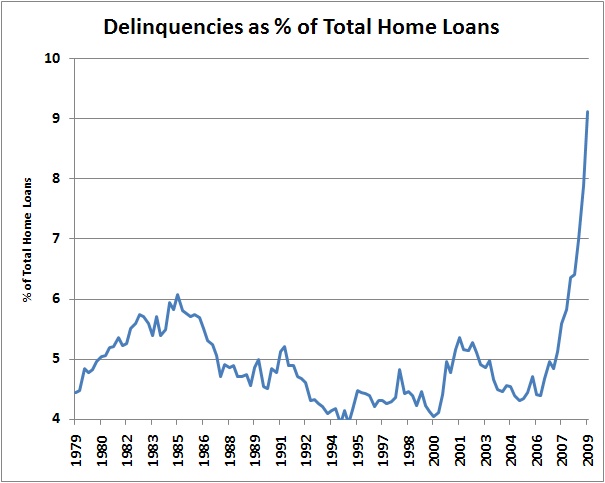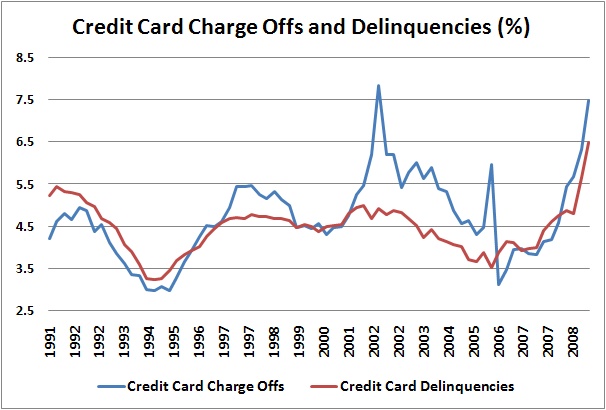We have quickly been led out of many past recessions through the strength of the American Consumer. Neglecting temporary boosts from government sponsored cash for clunkers programs, I do not believe that is going to be the case this time. Following the greatest personal wealth destruction since the great depression we have massive required deleveraging of households alongside the onslaught of baby boomer retirement which can only lead to higher personal savings rates. Walmart just came out with earnings and their EPS slightly beat estimates, but only by slashing inventory 6%. If people are not buying at Walmart, where are they buying? Retail sales less Autos came in today at -.6% for July versus a forecast of a .1% increase. Apparently nowhere.
How can 10% unemployment, 100% household debt-to-GDP, and retiring baby boomers with massive underfunding of retirement liabilities lead to anything but an increase in personal savings and slowdown in sales?
The only possible ways to spark consumer demand is to 1) increase consumer lending from banks or 2) decrease unemployment significantly and increase overall income.
The bad news is that banks continue to take it on the chin and only pictures can tell the story:

Case Shiller may have suggested that house price declines slowed a few months ago, but it will be interesting to see what happened after May

Lastly: foreclosures are high now, but judged on the trend in mortgage delinquencies they have further to go
What this says to me is that the banks are in no condition to lend to the consumer anytime soon and rightfully so. That leads to the last solution: create jobs and increase income. Our service based free-market economy is in no condition to increase employment in the near future, but our congressmen are more than happy to dump another few $750B stimulus plans into the system to grab a re-election. This will most likely be the medicine that the government tries to give the economy via government produced jobs. Those who are unemployed can still vote (and have plenty of time to do so), and it is likely that the 2010 election cycle will produce a massive, clamoring political body that will try to garner votes by addressing the unhappy unemployed.
This could actually speed up a recovery, but at the cost of higher taxes and inflation in the future.





